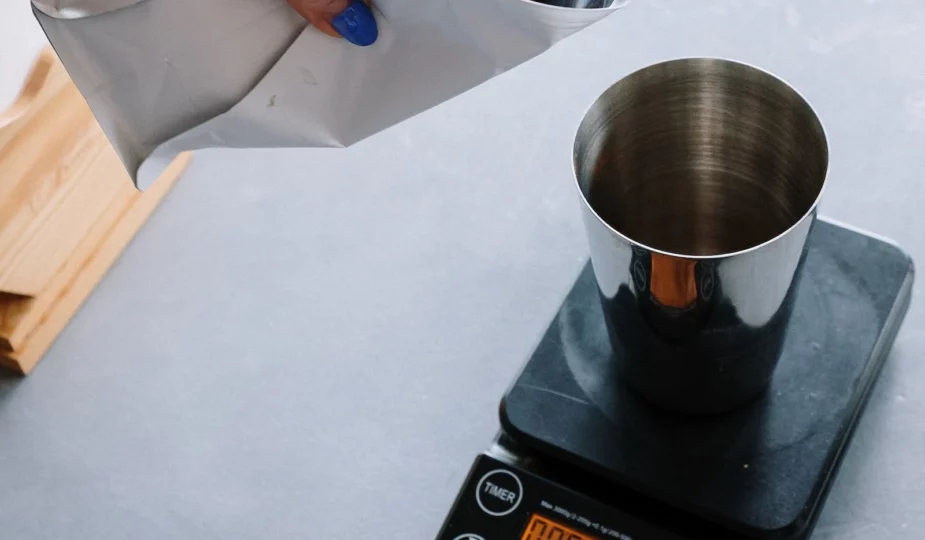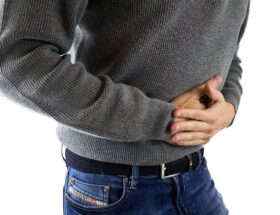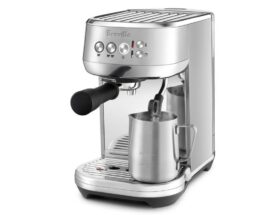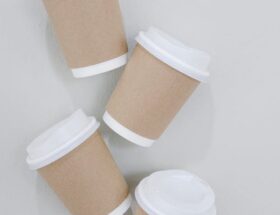
How Much Caffeine is in a Cup of Coffee: Know Your Dose
Are you a coffee lover who can’t start their day without a cup of Joe? If so, you’re not alone! Coffee is one of the most popular beverages in the world, cherished for its rich aroma and invigorating taste. However, have you ever wondered just how much caffeine is in that beloved cup of coffee?
In this blog post, we will delve into the fascinating world of caffeine and coffee. Not only will we answer the question of how much caffeine is in a cup of coffee, but we will also explore its effects, variations, and recommended daily intake. So, prepare to discover your caffeine dose and gain a better understanding of what you’re consuming every morning!
Interesting Fact: Did you know that coffee is the primary source of caffeine for most people? In fact, coffee accounts for about 54% of daily caffeine consumption worldwide, making it the undisputed champion when it comes to providing that much-needed energy boost.
Table of Contents
- The Caffeine Content in a Cup of Coffee: Discerning Your Intake
- Frequently Asked Questions
- 1. How much caffeine is in a cup of coffee?
- 2. Is caffeine bad for you?
- 3. How does caffeine affect our bodies?
- 4. Is caffeine addictive?
- 5. How much coffee is too much?
- 6. Can caffeine cause sleep problems?
- 7. Are there any health risks associated with caffeine?
- 8. Does the type of coffee affect caffeine levels?
- 9. Can decaffeinated coffee still have caffeine?
- 10. Are there any alternatives to coffee with lower caffeine content?
- Conclusion
The Caffeine Content in a Cup of Coffee: Discerning Your Intake
When it comes to your daily pick-me-up, a cup of coffee is often the go-to remedy. But have you ever wondered just how much caffeine is in your favorite beverage? Understanding the caffeine content in coffee is essential for managing your intake and ensuring you get the optimal dose. Let’s take a closer look at this stimulating topic.
1. The Varying Factors Affecting Caffeine Content
Caffeine levels in coffee can vary significantly depending on several key factors:
- Roasting Level: Lighter roasts generally contain more caffeine than darker ones.
- Bean Type: Arabica beans tend to have less caffeine compared to robusta beans.
- Brewing Method: Different brewing techniques can impact caffeine extraction levels.
- Coffee Bean Origin: The region where the coffee is grown can also influence its caffeine content.
2. Estimating Caffeine Levels
While it’s challenging to calculate the exact caffeine content in a cup of coffee, there are some general guidelines to consider:
- Standard Cup Size: A typical 8-ounce cup of coffee contains around 95 milligrams of caffeine.
- Espresso: A shot of espresso provides approximately 63 milligrams of caffeine in just 1 ounce.
- Cold Brew: Cold brewing coffee results in a higher caffeine concentration due to the extended steeping time.
- Decaf Options: Decaffeinated coffee contains only a small amount of caffeine, usually around 2-5 milligrams per cup.
3. Effects of Caffeine Consumption
Understanding the impact of caffeine on your body is crucial for consuming it responsibly. Here are some effects to consider:
- Alertness and Energy Boost: Caffeine can enhance mental alertness and alleviate fatigue.
- Sleep Disruption: Consuming caffeine too close to bedtime can interfere with your ability to fall asleep.
- Dependency and Withdrawal: Regular caffeine consumers may develop a dependence and experience withdrawal symptoms.
- Individual Tolerance: Caffeine sensitivity varies among individuals, so it’s important to know your own threshold.
4. Balancing Your Caffeine Intake
While there is no one-size-fits-all answer to how much caffeine you should consume, these tips can help you strike the right balance:
- Know Your Limits: Be aware of your caffeine sensitivity and set a personal intake limit.
- Choose Alternatives: If you’re looking to reduce your caffeine intake, opt for decaf or herbal teas.
- Spread it out: Instead of consuming large amounts of caffeine at once, try spacing it out throughout the day.
- Stay Hydrated: Balance your coffee consumption with plenty of water to avoid dehydration.
Frequently Asked Questions
1. How much caffeine is in a cup of coffee?
The caffeine content in a cup of coffee can vary depending on several factors, such as the type of coffee bean, the brewing method, and the serving size. On average, an 8-ounce (240 ml) cup of brewed coffee contains approximately:
- Caffeine in milligrams (mg): Around 95 mg to 165 mg of caffeine.
- Caffeine in grams (g): Approximately 0.095 g to 0.165 g of caffeine.
It’s important to note that these values are approximate averages and can vary widely. The actual caffeine content can be influenced by factors such as the coffee bean variety (Arabica or Robusta), the roast level, the brewing time, and the coffee-to-water ratio. Additionally, specialty coffee drinks like espresso, cappuccino, or latte may have different caffeine content compared to a standard cup of black coffee due to varying serving sizes and added milk.
As caffeine content can vary, it’s a good idea to check the packaging or consult the coffee brand’s website for more accurate and specific information about the caffeine content in their products
2. Is caffeine bad for you?
No, when consumed in moderation, caffeine can have several benefits such as increasing alertness and improving cognitive function.
3. How does caffeine affect our bodies?
Caffeine stimulates the central nervous system, increasing heart rate and providing an energy boost. It can also improve exercise performance and fat burning.
4. Is caffeine addictive?
Caffeine can be habit-forming, but it is not considered addictive. Moderate caffeine consumption does not typically lead to withdrawal symptoms or dependency.
5. How much coffee is too much?
The optimal daily intake of caffeine is about 400 milligrams, which is approximately 4 cups of coffee. However, individual tolerance may vary, so it’s important to listen to your body’s signals.
6. Can caffeine cause sleep problems?
Yes, consuming caffeine too close to bedtime can interfere with sleep. It is recommended to avoid caffeine at least 4-6 hours before going to bed.
7. Are there any health risks associated with caffeine?
Excessive caffeine consumption can lead to side effects such as nervousness, jitters, increased heart rate, and gastrointestinal issues. It’s important to moderate your intake and monitor your body’s response.
8. Does the type of coffee affect caffeine levels?
Yes, caffeine levels can vary depending on the type of coffee bean and the brewing method. Dark roast coffee generally has less caffeine compared to light roast coffee.
9. Can decaffeinated coffee still have caffeine?
Yes, decaffeinated coffee still contains a small amount of caffeine. The decaffeination process removes most, but not all, of the caffeine present in the beans.
10. Are there any alternatives to coffee with lower caffeine content?
Yes, there are plenty of alternatives to coffee with lower caffeine content such as herbal teas, green tea, and decaffeinated beverages. These alternatives can still provide a boost of energy without the high caffeine levels.
Conclusion
Understanding the caffeine content in your cup of coffee empowers you to make informed decisions about your daily dose. It’s essential to recognize the factors affecting caffeine levels, estimate your intake, and be mindful of its effects on your body.
And, remember:
- How Many Milligrams of Caffeine is in a Cup of Coffee: Around 95 mg to 165 mg of caffeine
- How Many Mg of Caffeine is in a Cup of Coffee: Around 95 mg to 165 mg of caffeine
- How Many Grams of Caffeine is in a Cup of Coffee: 0.095 g to 0.165 g of caffeine.
By striking a healthy balance, you can enjoy your coffee without getting jittery or sleep-deprived. So go ahead, savor your brew, and know your dose!









